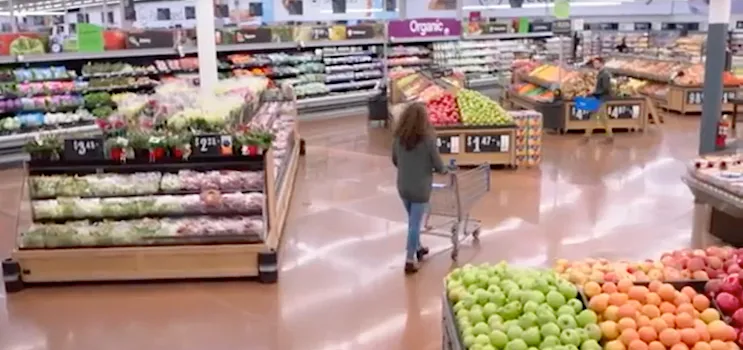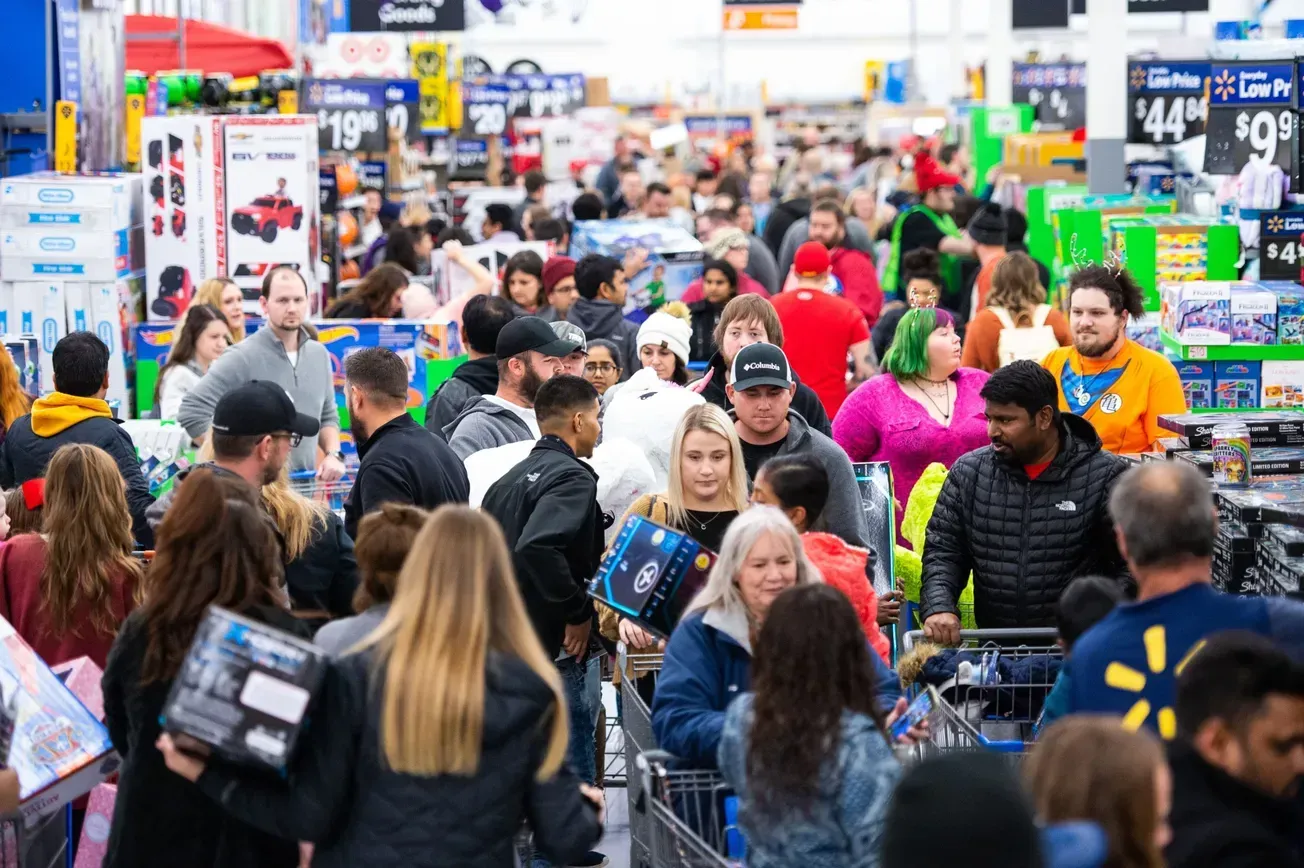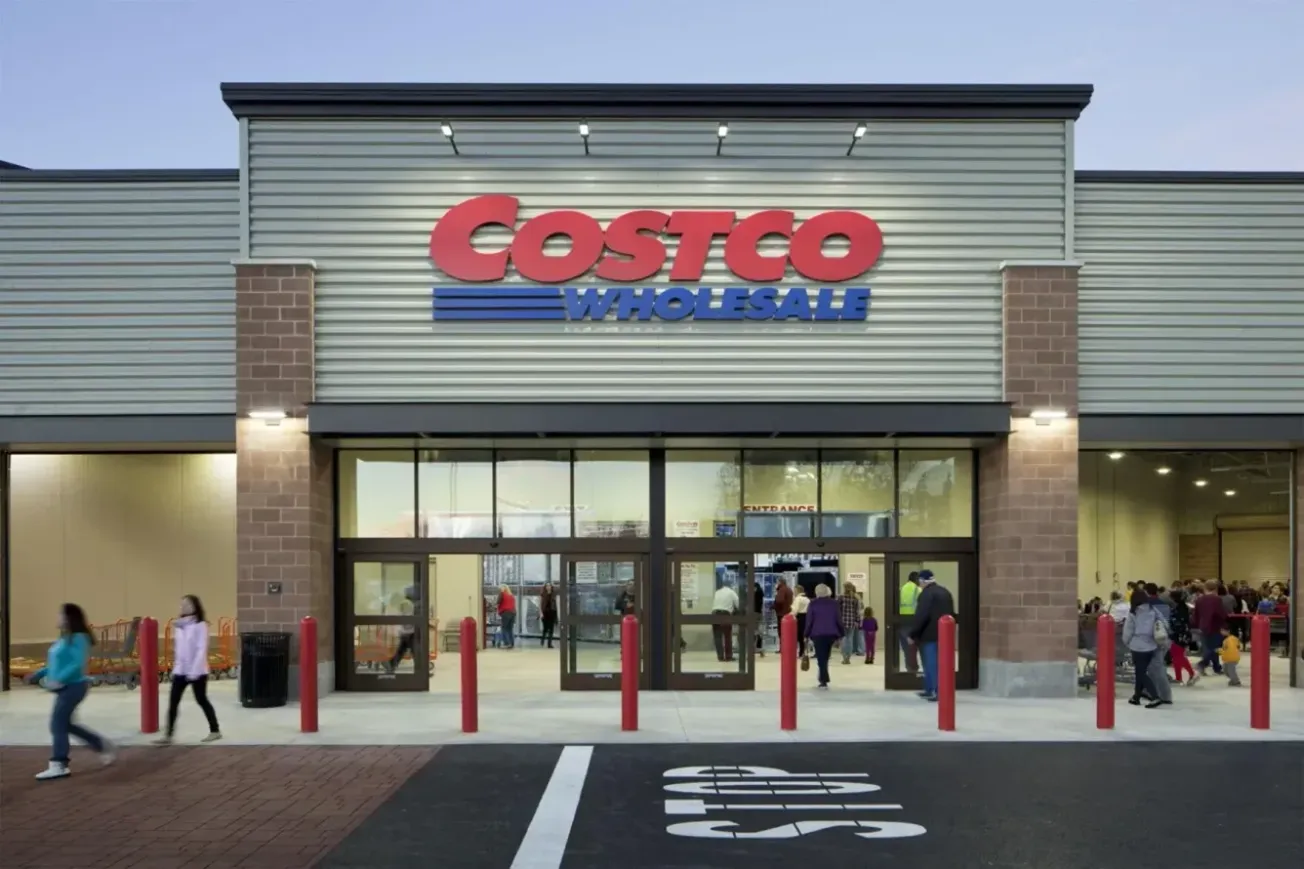ARMONK, N.Y. — Walmart and Kroger Co., two of the nation’s biggest retailers, are participating in a major blockchain collaboration with IBM Corp. and food companies to bolster consumer confidence in the global food system.
IBM said Tuesday that is working with the consortium — also including Dole, Driscoll’s, Golden State Foods, McCormick and Co., McLane Co., Nestlé, Tyson Foods and Unilever — to explore how IBM blockchain technology can be used to improve safety in the food supply chain.
Serving as a digital, decentralized ledger, a blockchain keeps a record of all transactions across a peer-to-peer network. The collaborative technology creates a trusted environment for participants to engage in transactions without the need for confirmation from a centralized third party.
In the food supply chain, blockchain solutions can help improve food traceability. All participants — growers, suppliers, processors, distributors, retailers, regulators and consumers — can gain permissioned access to known and trusted information on the origin and state of food for their transactions. As a result, food providers and other members of the ecosystem can use a blockchain network to trace contaminated product to its source in a short amount of time for safe removal from store shelves, stemming the spread of illnesses.
Walmart, Kroger, Dole, Driscoll’s, Golden State Foods, McCormick, McLane, Nestlé, Tyson and Unilever, among others, are partnering with IBM to help identify and prioritize areas where blockchain technology can aid food ecosystems and drive new IBM solutions, the IT giant said. The effort will leverage IBM pilots and production networks in related areas that demonstrate ways that blockchain can benefit global food traceability, according to the company.
IBM and Walmart, in parallel trials in China and the United States, recently showed that blockchain can be used to track a product from the farm through all stages of the supply chain — right to the retail shelf — in seconds rather than days or weeks.
“As an advocate for greater transparency in the food system to benefit customers, Walmart looks forward to expanding on our initial work by collaborating with others to accelerate exploration on how this technology can be used as a more effective food traceability and food safety tool,” Frank Yiannas, vice president of food safety at Walmart, said in a statement.
“Blockchain technology enables a new era of end-to-end transparency in the global food system, equivalent to shining a light on food ecosystem participants that will further promote responsible actions and behaviors,” Yiannas explained. “It also allows all participants to share information rapidly and with confidence across a strong trusted network. This is critical to ensuring that the global food system remains safe for all.”
IBM noted that the trials helped frame food safety as a collaborative issue for the global food supply chain and underscored that stakeholders must work together to improve the food system for everyone.
“Safety is a key value for Kroger, and our partnership with IBM positions us to explore and test blockchain technology as a solution for enhanced food safety across our business,” stated Howard Popoola, vice president of corporate food technology and regulatory compliance at Kroger. “Food safety is a universal priority for food retailers and companies. It’s not a competitive advantage; it benefits our customers to have greater transparency and traceability in the supply chain.”
To spur adoption of the technology, IBM said it’s introducing what it calls the first fully integrated, enterprise-grade production blockchain solution, the IBM Blockchain Platform. Along with consulting services, the platform is designed to enable organizations to rapidly activate their own business networks and access the capabilities needed to develop, operate, govern and secure blockchain networks.
Available via the IBM Cloud, the platform builds off of the blockchain work IBM has provided to more than 400 organizations, incorporating insights gained as IBM assembled blockchain networks across industries, including financial services, supply chain and logistics, retail, government and health care.
IBM said that each year, one in 10 people become ill and 400,000 die from contaminated food, and issues impacting food safety such as cross-contamination, the spread of food-borne illness, unnecessary waste and the economic burden of recalls are amplified by lack of access to information and traceability. It can take weeks to identify the point of contamination, causing further illness, lost revenue and wasted product.
“Unlike any technology before it, blockchain is transforming the way like-minded organizations come together and enabling a new level of trust based on a single view of the truth,” commented Marie Wieck, general manager of IBM Blockchain. “Our work with organizations across the food ecosystem, as well as IBM’s new platform, will further unleash the vast potential of this exciting technology, making it faster for organizations of all sizes and in all industries to move from concept to production to improve the way business gets done.”






